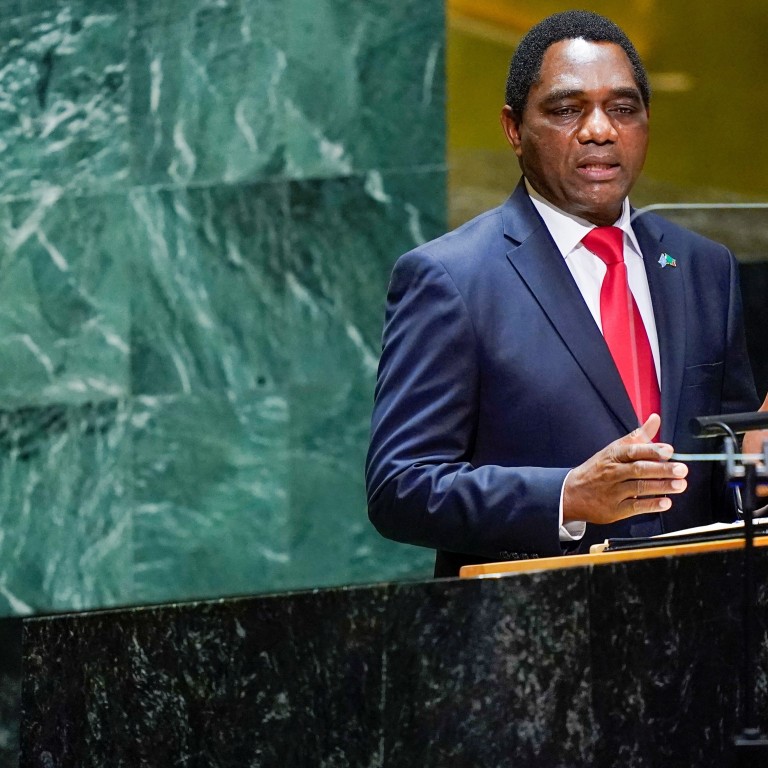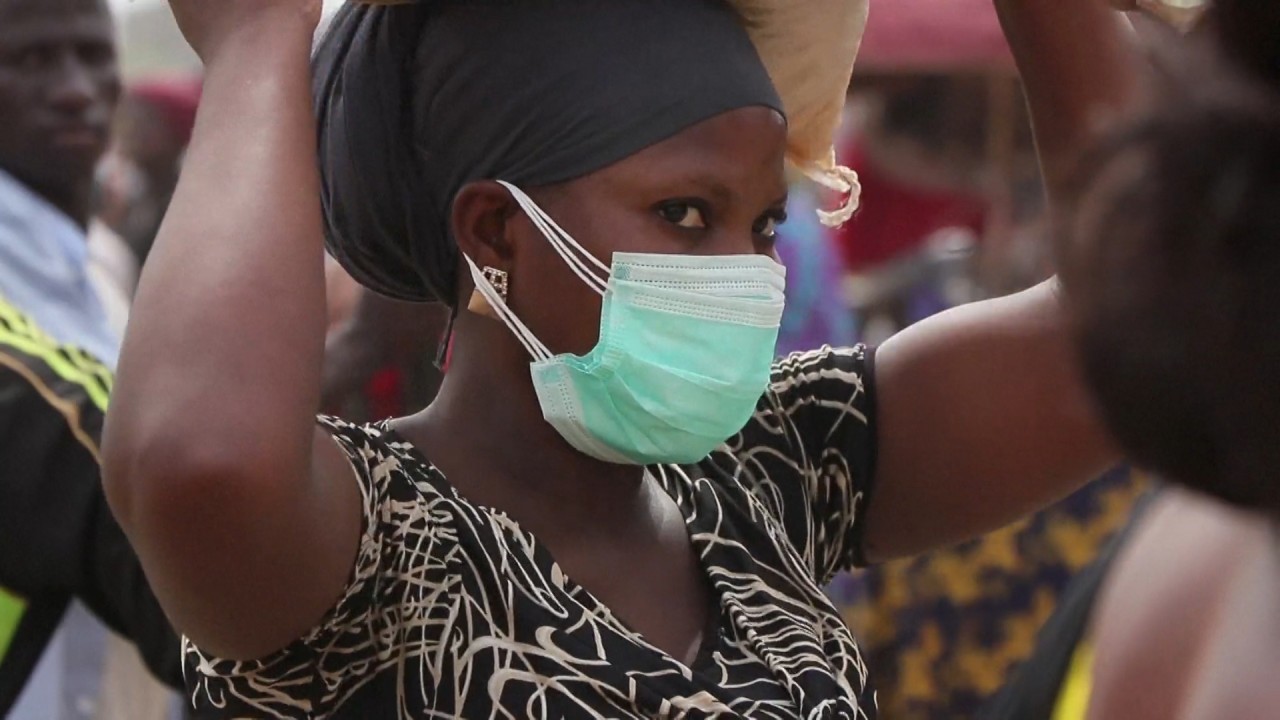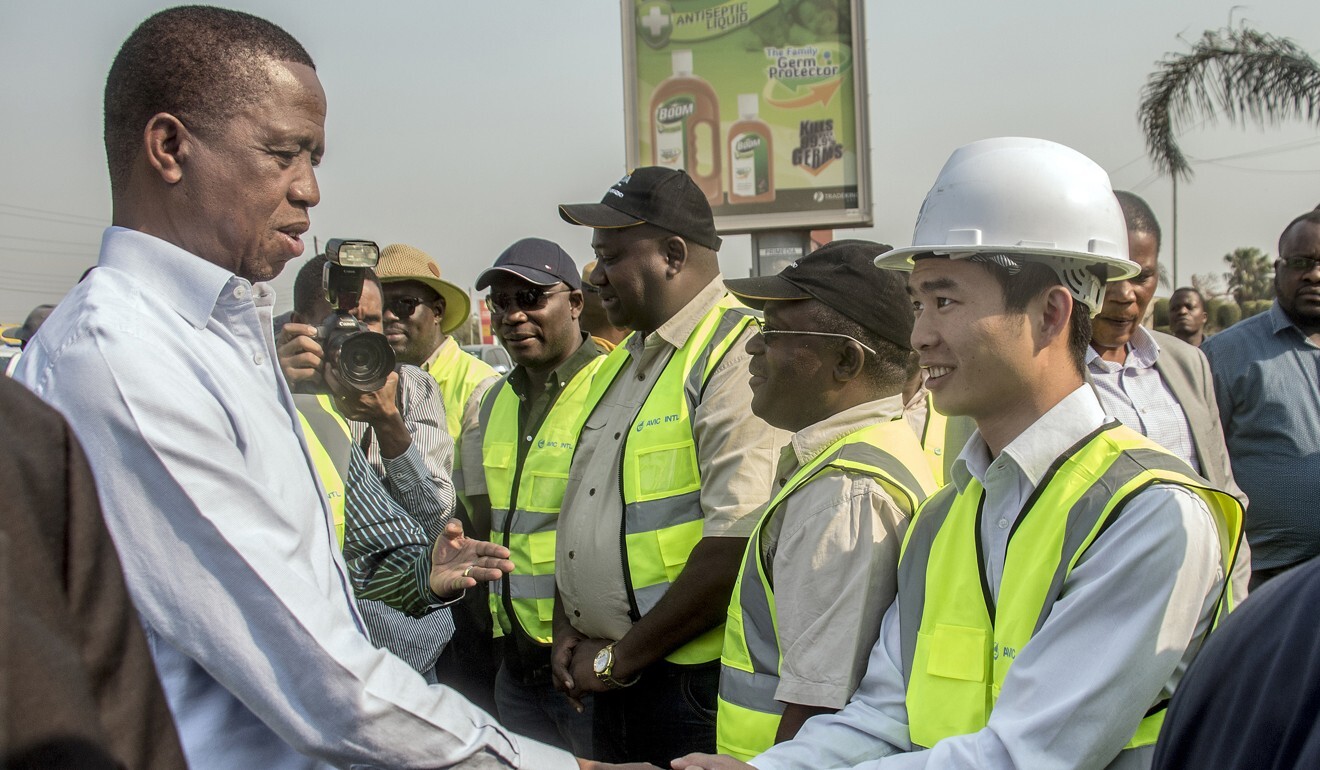
China in Africa: Zambia’s Chinese debts nearly double the official count, study says
- Zambia owed Chinese financiers US$6.6 billion as of August, not US$3.4 billion as reported by outgoing administration, China Africa Research Initiative says
- The lack of full disclosure and transparency seen to complicate Zambia’s bid for debt relief from G20 countries and hopes of an IMF bailout
Lusaka owed Chinese financiers US$6.6 billion as of August – nearly double the US$3.4 billion that the southern African nation had revealed previously, according to the report from the China Africa Research Initiative (CARI) at the Johns Hopkins University’s School of Advanced International Studies.
The figure did not include unpaid domestic debts to Chinese contractors.
However, it failed to provide enough details about the debts of its state-owned enterprises and gave no details about the creditor composition for their debt, Deborah Brautigam, a professor of international political economy at Johns Hopkins and founding director of CARI, said.
The revelations may embolden President Hakainde Hichilema, who warned last month that officials in the former administration had failed to disclose a lot of debt owed to foreign lenders, including Chinese entities.
Zambia election winner likely to push for 20 per cent China debt reduction
Hichilema, who won a landslide victory over Lungu in national elections last month, has vowed to “uncover Zambia’s true debt burden”.
“So now that we’re in, we are beginning to see that the debt numbers that were being talked about officially are not the comprehensive numbers.”
Zambia, Africa’s second-largest producer of copper, has become heavily dependent on capital from China, which has funded a string of major infrastructure projects across Africa.
Getting a clear picture of Zambia’s debts may help clear the way for the International Monetary Fund to provide a bailout, as debt restructuring with foreign lenders is reportedly a precondition.
The study said that official sources, including the World Bank and Zambia’s finance ministry, have not provided accurate information on the stock of debts owed by Lusaka to Chinese lenders.
“None of this outstanding debt appears to have been reported to the World Bank’s International Debt Statistics or disclosed by the Ministry of Finance in its Annual Economic Reports,” the CARI report said.
Zambia’s finance ministry told Bloomberg that the “debt to Chinese lenders has been transparently reported as part of the aggregate debt figures” and that it was normal not to provide a breakdown of debts to individual lenders, because of confidentiality clauses.
“Total amount of debt owed to Chinese and any other creditors has been disclosed by Zambia in full transparency and to the extent possible and as per customary debt reporting schedule,” the ministry said.
This comes at a time when Zambia is trying to convince the IMF to provide a bailout, after becoming the first African country to default on debt repayments for some of its Eurobonds in the pandemic era.

03:58
To starve or get sick: Africa’s lockdown dilemma amid the coronavirus pandemic
On why Zambia had not put the Chinese numbers together, Brautigam, also co-author of the report, said: “I imagine the Lungu administration was avoiding the negative publicity that would have come from the much higher figure.”
She said relations with China were highly politicised in Zambia, where “politicians have been playing the ‘China card’ in elections for over 15 years”.
During his 2006 presidential election campaign, the late Michael Sata warned against giving away Zambia’s sovereignty. But when elected president five years later, he welcomed Beijing’s continued funding for infrastructure projects. Sata died in 2014, with defence minister Lungu taking over as president.

The CARI study found loan commitments by Chinese financiers between 2000 and 2020 totalled US$10.3 billion, with 63 per cent or US$6.47 billion pledged since 2015 – when Lungu became president after the death of Sata.
“We calculate that Zambia and its state-owned enterprises have repaid at least US$1.2 billion to Chinese lenders since 2000,” Brautigam said in a note on the CARI report.
Years of massive spending amid distressed economic prospects saw Lusaka borrow excessively to meet its budget obligations, which pushed its total public external and publicly guaranteed debts to US$14.3 billion.
Zambia’s troubles can be traced to more than a decade ago when it started ramping up debts to fund projects that included power dams, airports and roads. In 2005, the country benefited from massive debt write-offs from international financial institutions including the World Bank and the Paris Club amounting to US$3.8 billion – under the Highly Indebted Poor Countries (HIPC) Initiative.
This created room for more debt even after Lusaka had promised it would avoid new, non-concessional loans.
CARI said soon after the completion of the HIPC, Zambia and its state-owned enterprises entered into at least 77 different loan contracts with Chinese financiers, many at commercial rates. It also borrowed about US$3 billion via Eurobonds.
CARI said under Lungu between 2015 and 2021, Zambia sharply ratcheted up Chinese borrowing for public works as copper prices were falling, while clamping down on public disclosure.
By September 2017, the IMF had categorised Zambia at “high risk” of debt distress. But, despite the risks, Zambia in 2018 obtained at least US$1.34 billion in new Chinese funding, half of all the new loans signed by the government that year.
Zambian president banks on Chinese investments to help his re-election
Brautigam said most if not all of the Chinese borrowing could be accounted for in the US$14.3 billion of total foreign debts, as reported by the Lungu administration, “but no one has spelled out what part of this debt is to all Chinese creditors combined or noticed that 18 Chinese lenders have provided loans in Zambia”.
“It does mean that the Lungu government was not transparent about the heavy weight of Chinese financiers among its many external creditors.”
“Given the complicated situation with at least 18 Chinese lenders having provided external loan funding to the Zambian government and its state-owned firms, reaching consensus on burden-sharing in the Common Framework is likely to prove exceptionally difficult,” Brautigam wrote.
The “Common Framework” will allow China and the G20 countries to coordinate their discussions on restructuring Zambia’s debts – the first time China will be holding multilateral debt negotiations.

